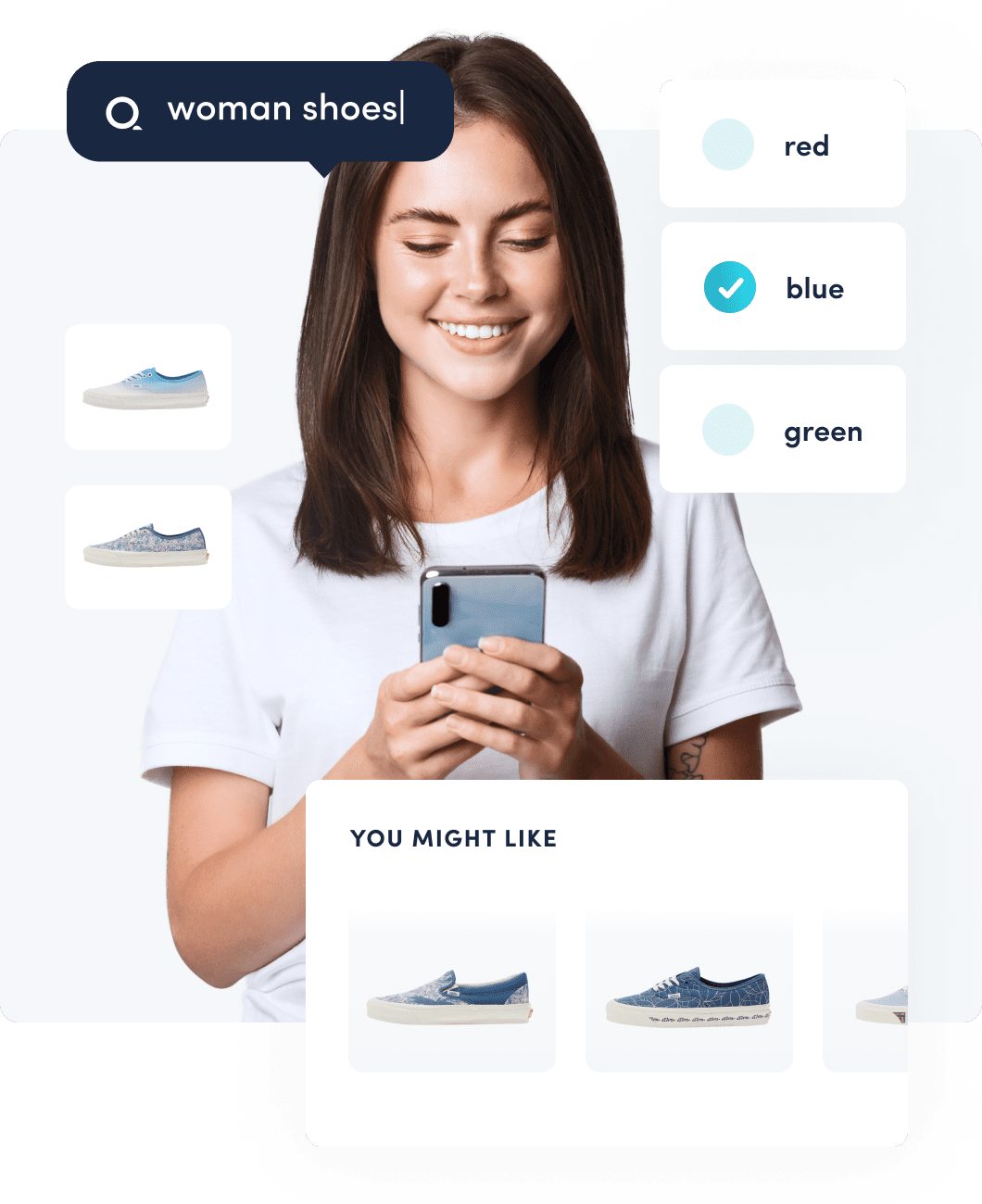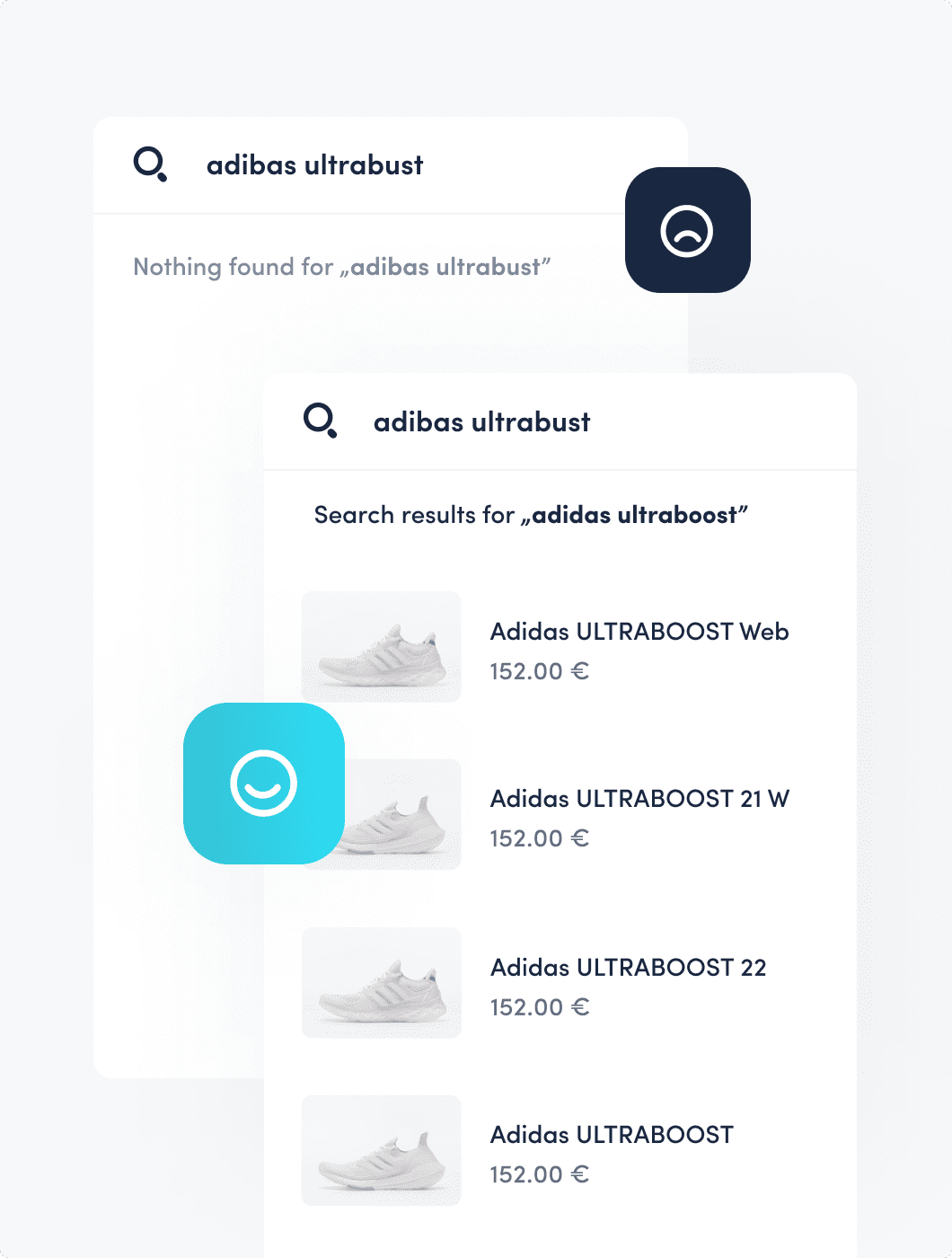
What is a personalized search?
A personalized search is when a site search customizes the search results based on a user’s geographic location, previous searches, user intent, and known preferences.
It refers to online search experiences that are tailored specifically to a user’s interests by incorporating information about them beyond the specific search query typed in the search bar.
Methods of personalization
Typically, there are two approaches to search personalization:
-
Modifying the user’s query to provide a more relevant set of search results
-
Re-ranking search results to rank the most relevant results higher
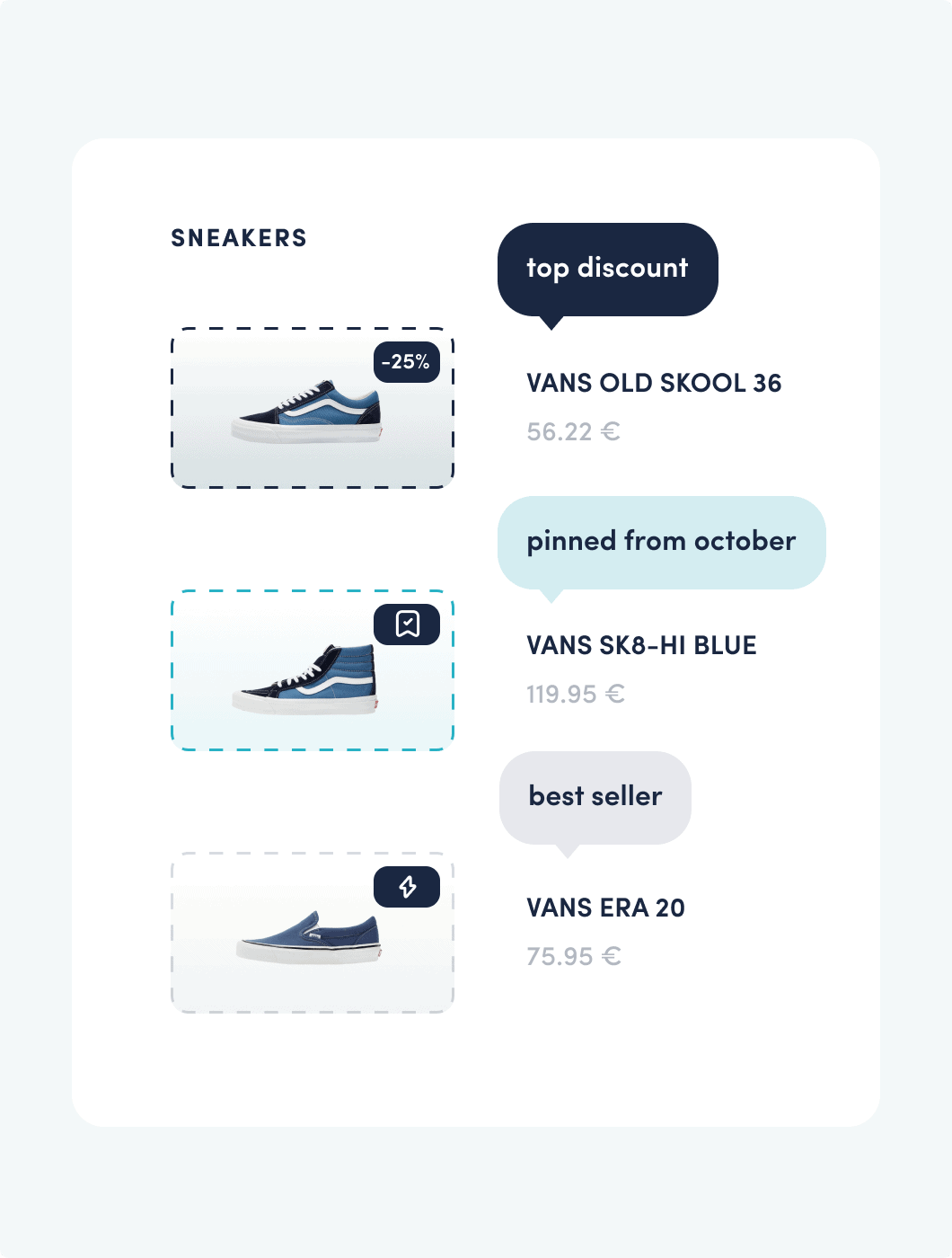
Trusted by more than 3,000 online businesses
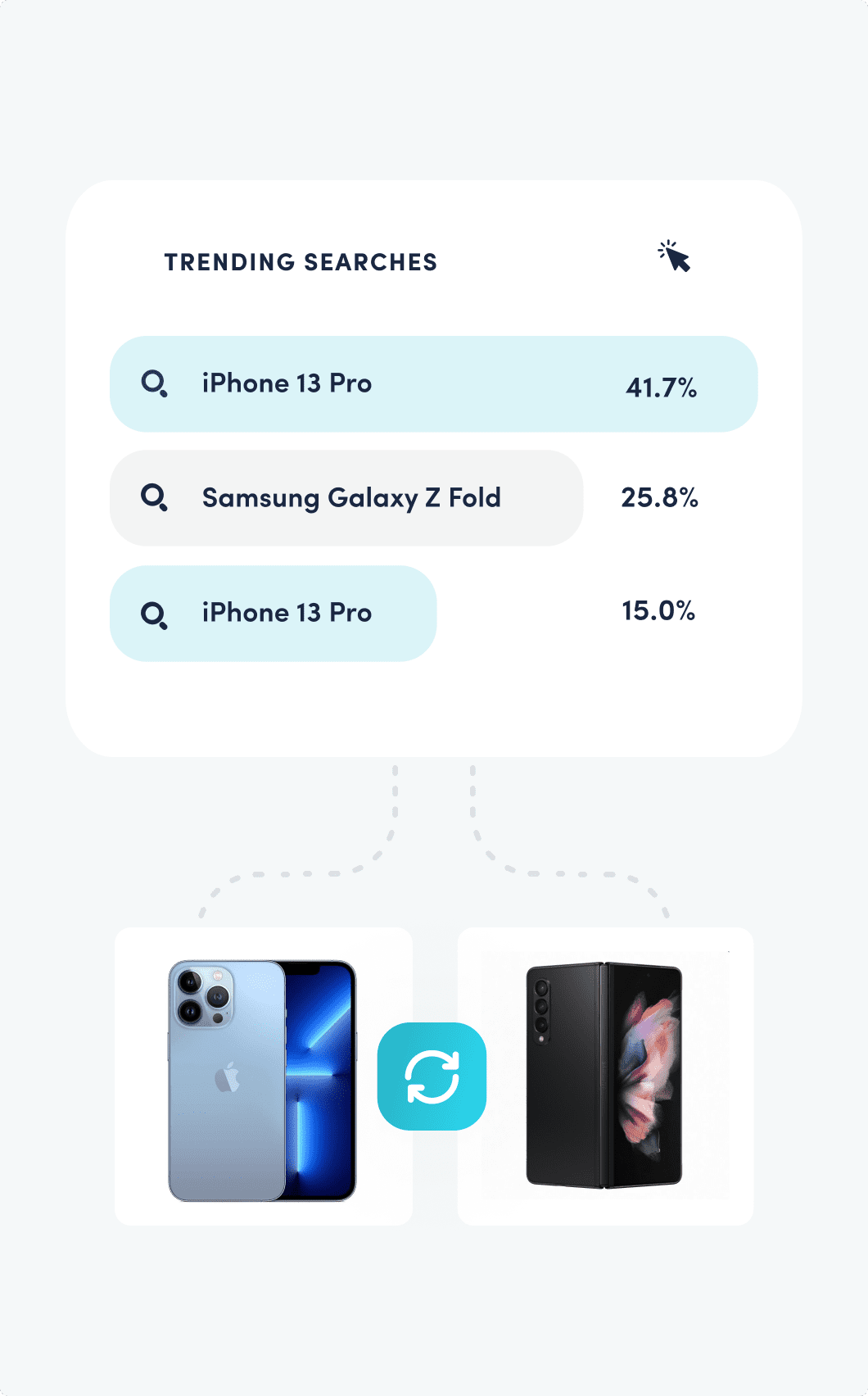
Example of personalized search
Suppose a customer buys a smartphone on your e-commerce website. When they search for accessories such as phone covers, the search algorithm shows products suitable to the model they purchased.
This way, the customer will not only find what they were looking for faster but will also see results relevant to the model they chose.
The origin of search customization
All major search engines today use search personalization. However, Google first introduced the concept of personalized searches in 2004 to improve the user experience.
Google personalized search ties in a user’s search history, bookmarks, and Google services (such as Gmail, Google Maps, Google+, etc.) to deliver personalized search results.
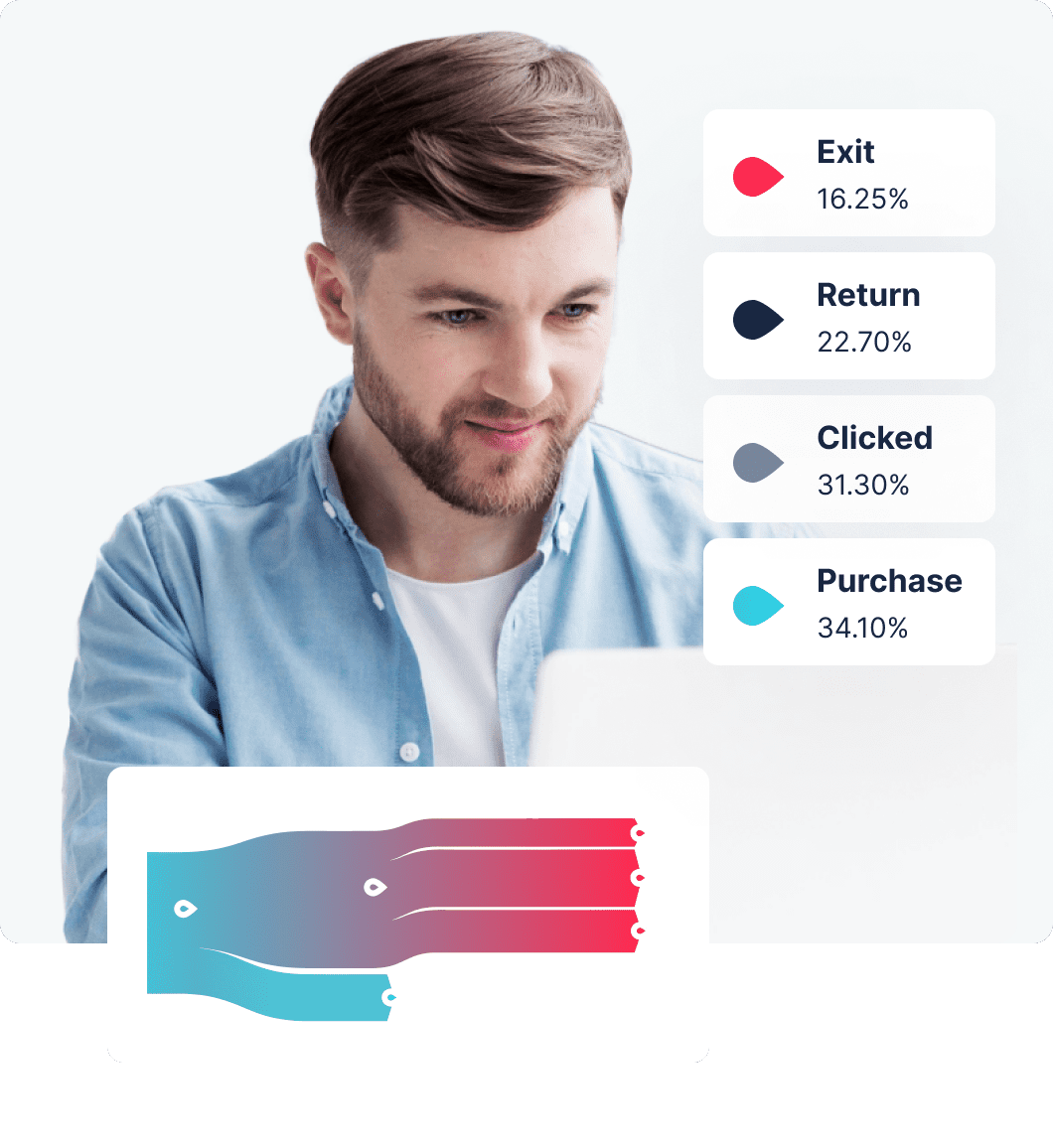
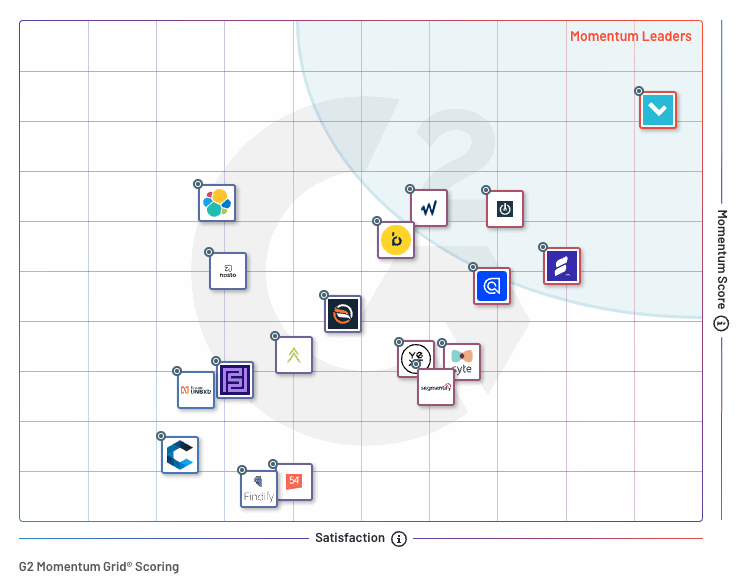
Gain momentum with us!
The Momentum scores for E‑Commerce Search display each product’s Momentum score on the vertical axis and Satisfaction score on the horizontal axis, based on G2’s algorithms. Products within the shaded area have a top 25% Momentum Grid® score.
G2’s E-Commerce Search Relationship Index
Discover the factors influencing product relationships. See the chart below for insights on ease of business, support quality, and recommendations from our customers.
- Ease of Business
- Likely to Recommend
- Quality of Support
- Other Factors
-
Ease of Business: 3.29
-
Likely to Recommend: 1.43
-
Quality of Support: 3.34
-
Other Factors: 1.71
-
Ease of Business: 3.43
-
Likely to Recommend: 1.43
-
Quality of Support: 3.4
-
Other Factors: 1.25
-
Ease of Business: 3.29
-
Likely to Recommend: 1.36
-
Quality of Support: 3.27
-
Other Factors: 1.45
-
Ease of Business: 3.22
-
Likely to Recommend: 1.29
-
Quality of Support: 3.1
-
Other Factors: 1.67
-
Ease of Business: 3.39
-
Likely to Recommend: 1.41
-
Quality of Support: 3.47
-
Other Factors: 0.75
Who uses search personalization
Today, many businesses use search personalization to facilitate the customer shopping experience by displaying relevant products. Here are a few top industries that excessively rely on personalized search strategies:
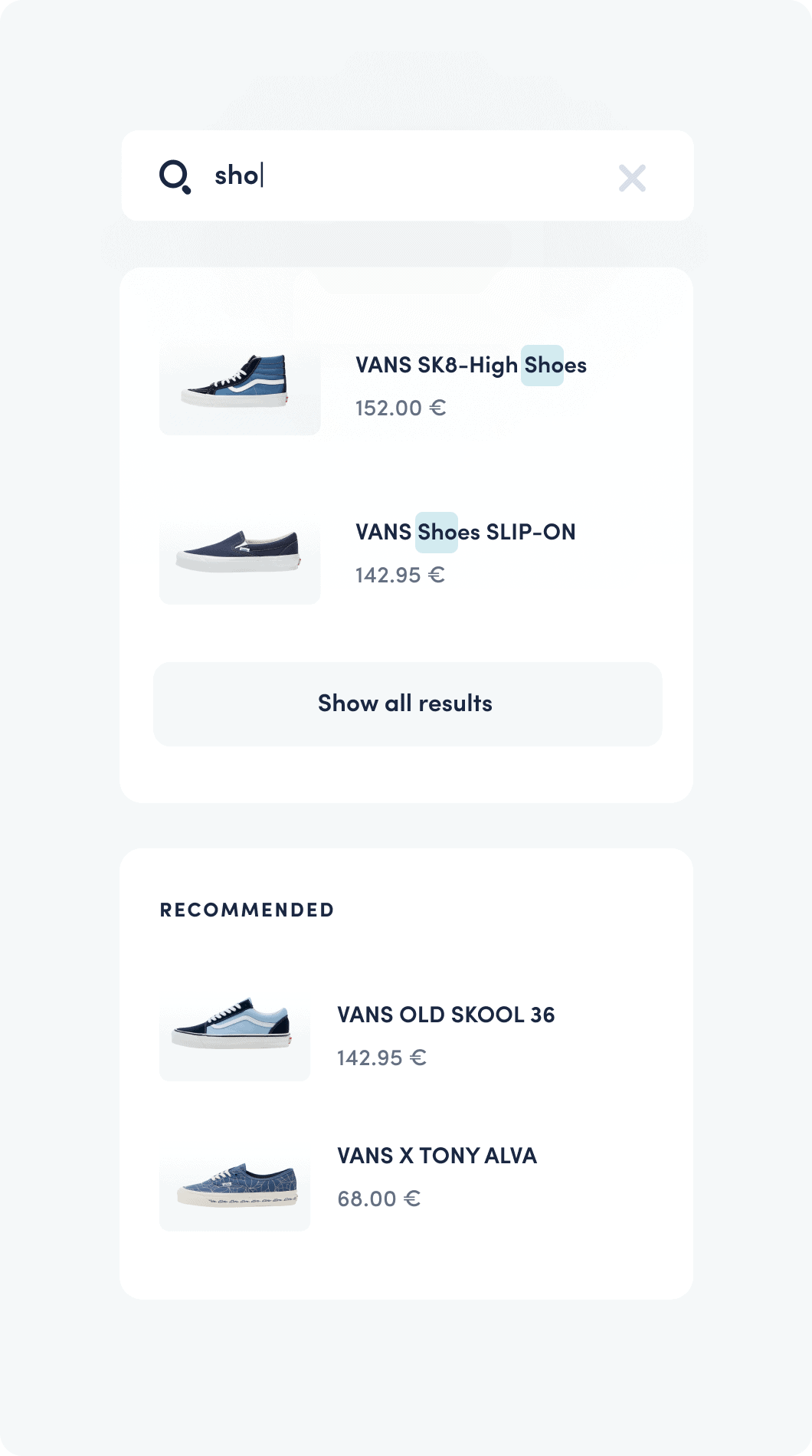
E-commerce marketplaces
E-commerce websites and marketplaces like eBay, Etsy, and Amazon use personalized search to help customers find relevant products as soon as they start typing in the search box. Some sites also take into account visit frequency and affinity for particular brands or product attributes.
Media and entertainment
Streaming sites like Netflix and Spotify leverage search personalization to show users different content based on their interests. Netflix uses customer viewing data, search history, rating data as well as time, date and the user’s device to predict what should be shown to them.
Food and beverage
Leading fast food chains like McDonald’s, KFC, and Starbucks personalize searches based on time of day, current location, the weather forecast, or trending menu items. For example, McDonald’s menu suggests hot tea when it’s raining and ice cream on sunny afternoons.
Social networks
Social media giants like Facebook and Instagram show different content to different people based on their preferences, interests, and behaviors that they opt to share online. For example, Instagram relies on machine learning based on your past behavior to create a unique feed for everyone.
Technology and SaaS
Many tech companies, such as software-as-a-service (SaaS) businesses, are using search personalization to give their customers quick access to relevant material so they can potentially resolve their own issues. For instance, HubSpot personalizes search on its site to help users find relevant content quickly.
Why should you personalize search in your e-commerce store?
According to Epsilon, 80% of customers indicate they’re more likely to do business with a company if it offers personalized experiences and 90% indicate that they find personalization appealing.
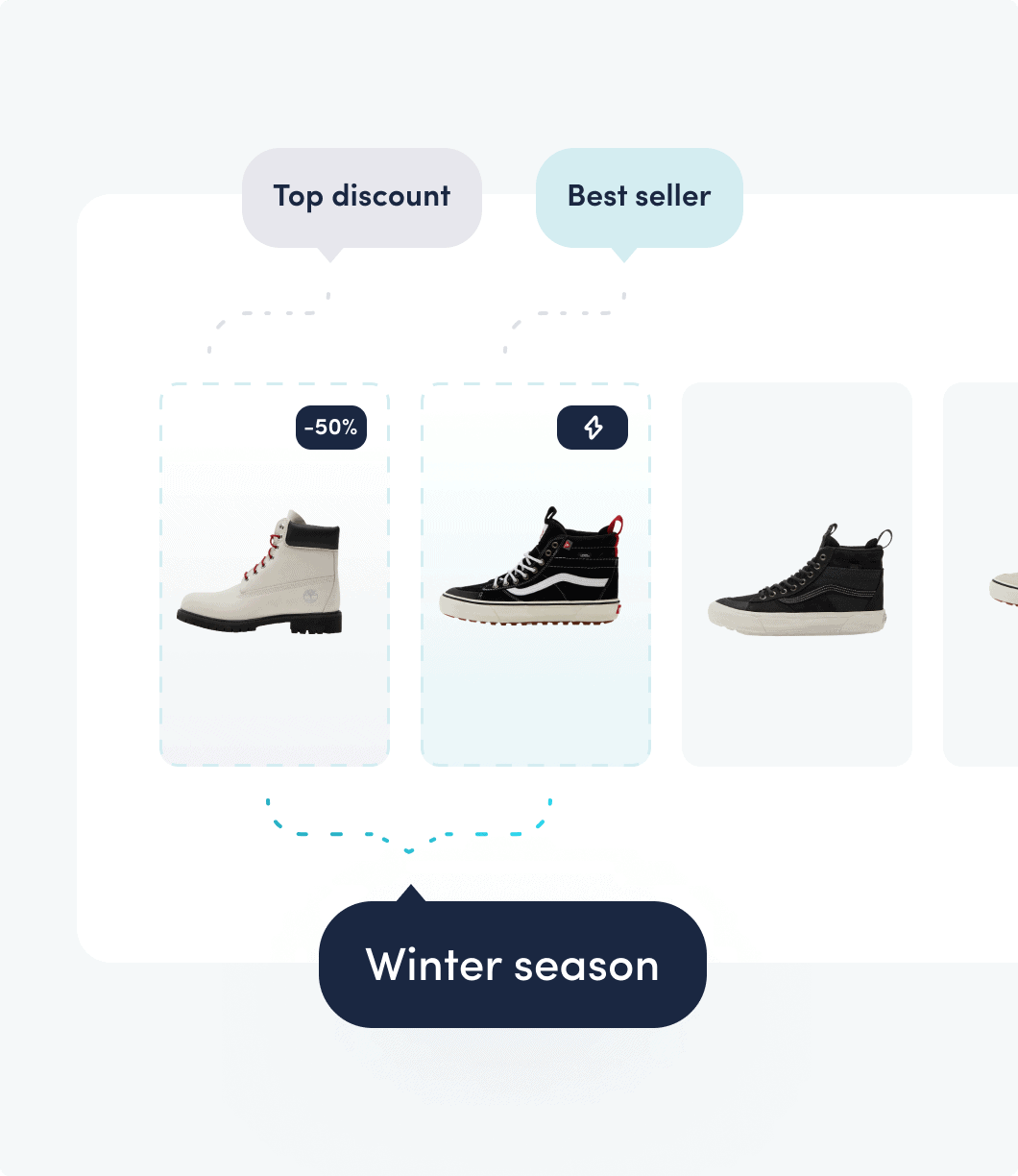
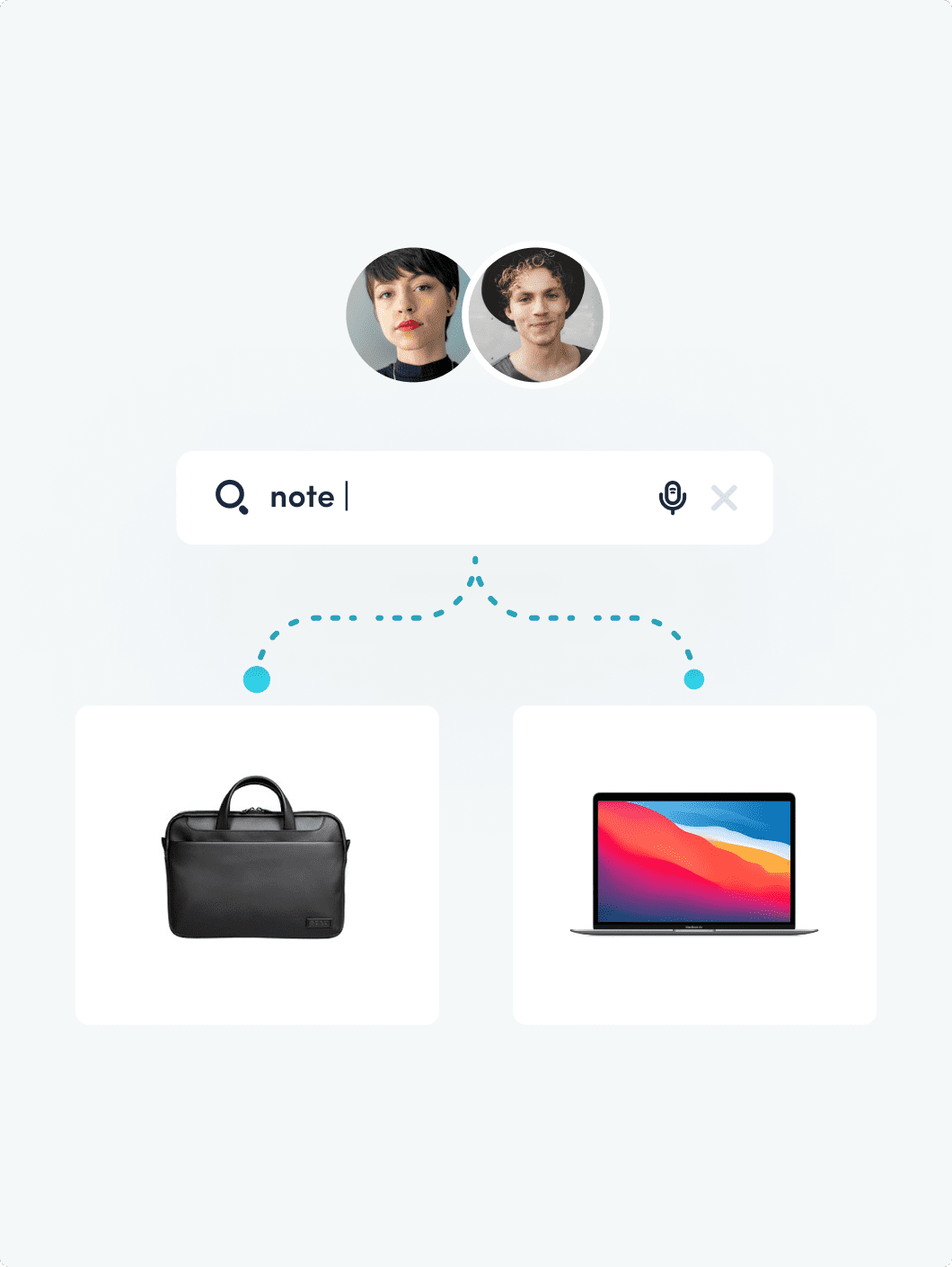
Personalization matters more than ever, with COVID-19 and the surge in digital behaviors raising the bar. A McKinsey survey reveals that nearly 75% of consumers switched to a new store, product, or buying method during the pandemic.
Today, almost 71% of consumers expect companies to deliver personalized interactions, and 76% get frustrated when this doesn’t happen.
Search personalization helps grab the attention of customers and reduces the amount of browsing time and energy a customer expends while browsing your e-commerce site.
Presenting a customer with quick search suggestions they’re likely to prefer helps increase the chance of actually increasing conversions. Companies that excel at personalization generate 40% more revenue than average players.
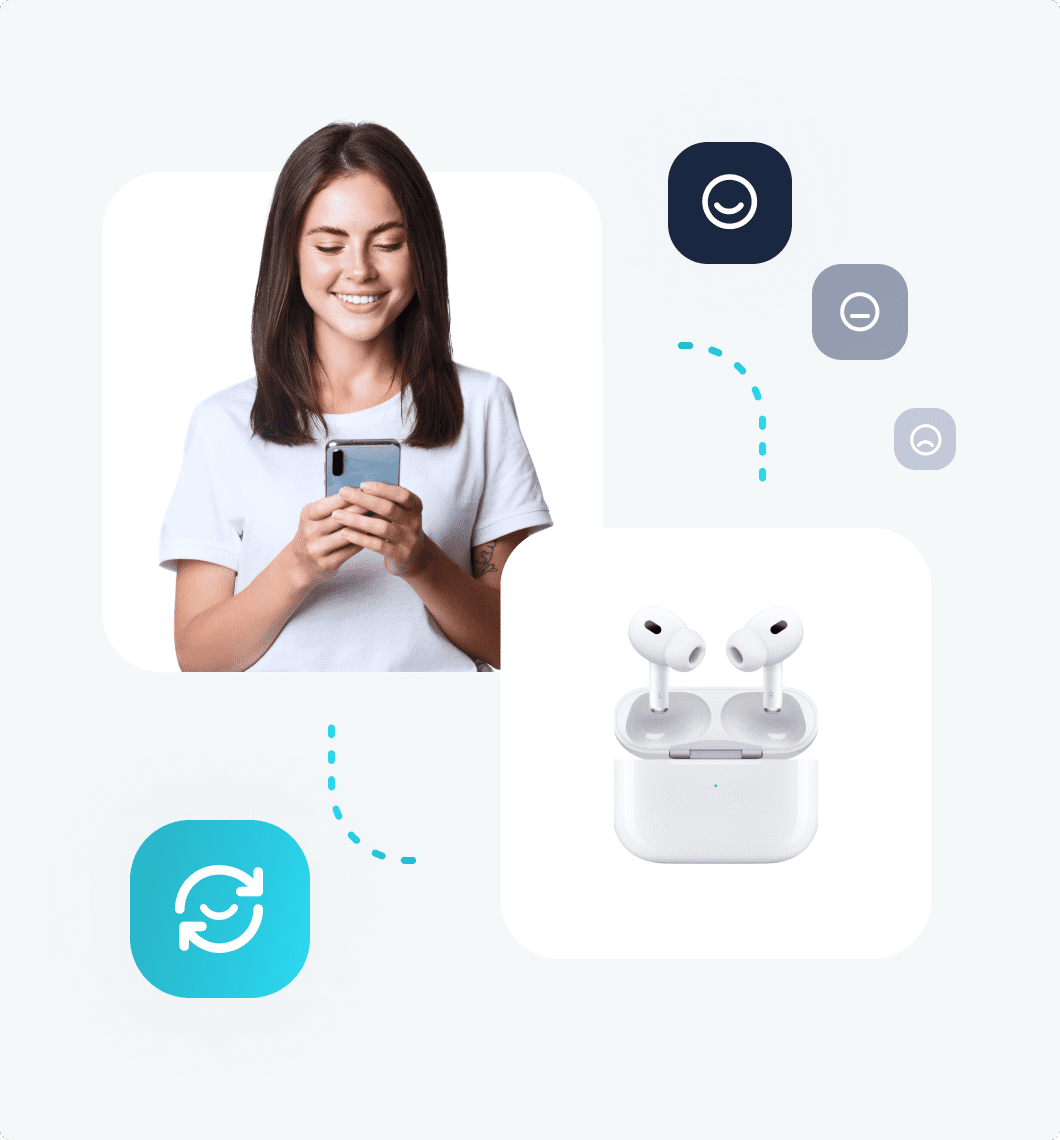
How does search personalization work?
Personalized search results aren't just based on traditional ranking factors (such as relevancy). They also consider additional data about the individual user, such as their language, current location, user profile, intent, or past searches.
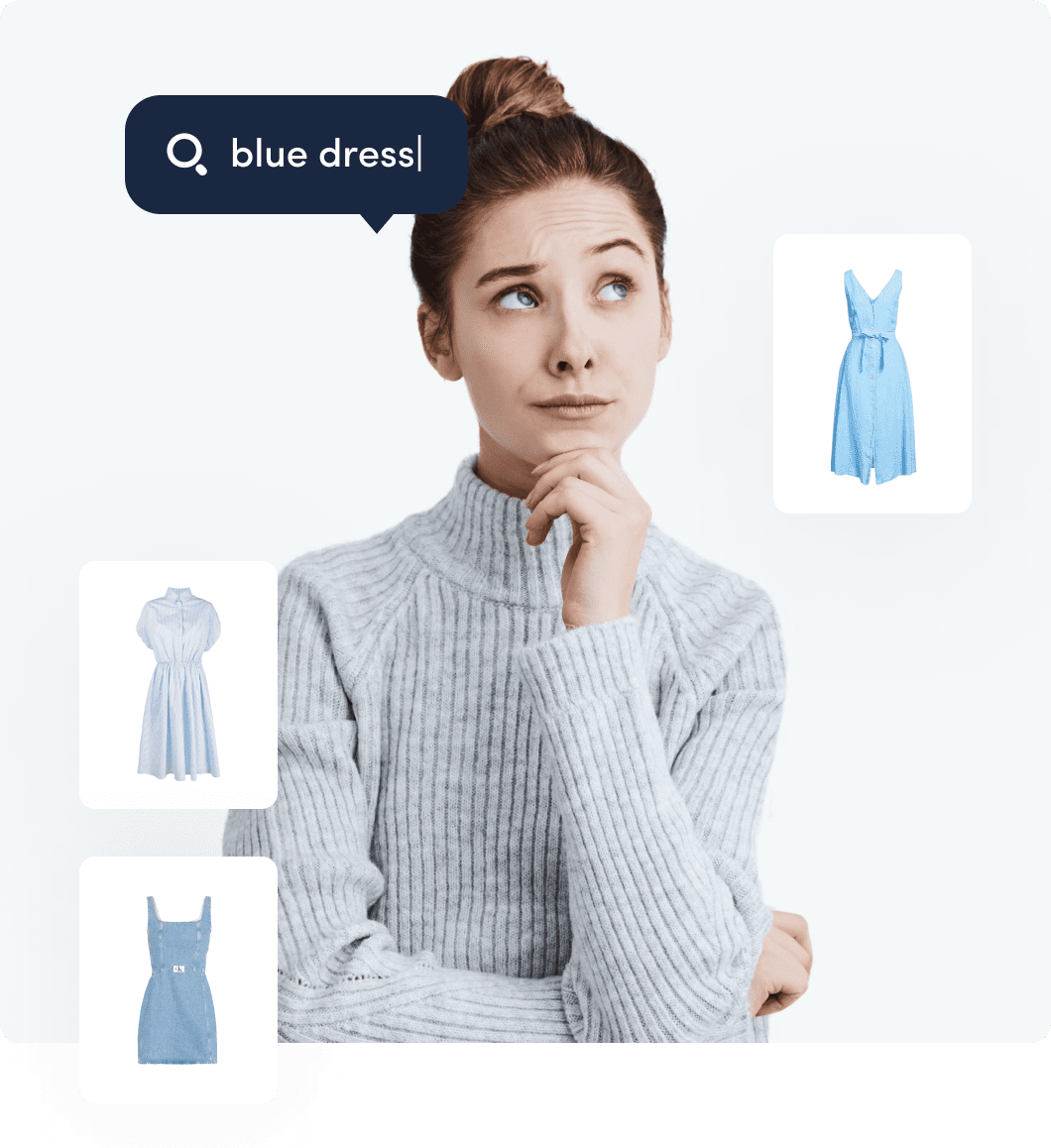
Example: History-based personalization
Suppose you search “white shirt” on a clothing website and get results of woman shirts. Then you click on men’s category and browse some products. Now if your subsequent search is again “white shirt”, you will see the results for men without having to choose the men category.
Example: Re-ranking search results
When a product’s more popular sizes go out of stock, the search algorithm can automatically lower the ranking of a product and show other products that have more size options.
Try out Luigi’s Box personalized search
Find out how we can boost your business on a demo call with one of our experts.
How to implement personalized search
Search personalization can be difficult, but not anymore! With Luigi’s Box, you can get up and running in just a few simple steps:
-
Synchronize your product database with our search index.
-
Integrate Luigi's Box Search Analytics service to enable learning with your website.
-
Sit back and relax while our integration team launches your search.
-
Learn more here.

Luigi's Box is compatible with any website
There are three ways how to deliver your product data to Luigi’s Box.
Personalize your internal search with Luigi's Box
With Luigi's Box Search, give your customers the freedom to explore your content through relevant search that:
Tolerates their typos and knows the synonyms related to your products
Improves their experience with personalization and voice search
Gives them powerful filtering mechanisms and AI-driven results
Shows them the right category, brand, or product from the first keystroke
See the results our clients get

assisted conversions
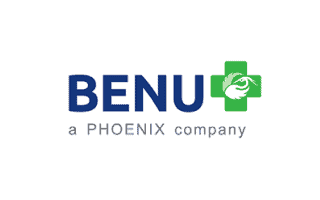
search conversion rate
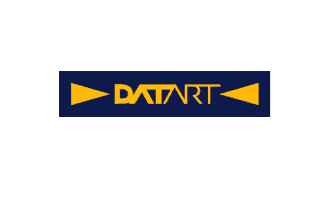
increase revenue

autocomplete conversions
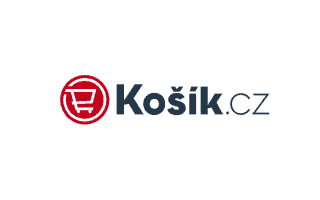
search conversion rate
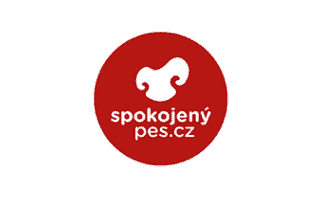
search conversion rate

average conversion rate
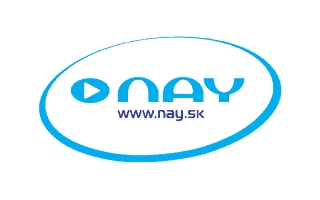
search conversion rate
Frequently asked questions
What is personalized search?
Personalized search shows results that aren’t just based on the typical ranking factors (like the relevance of the content to the keyword), but also on the data that the search engine has about the individual at any given time, such as their geographical location, past searches, or intent.
Why is personalized search important for e-commerce businesses?
Search personalization builds brand loyalty, boosts customer satisfaction, and makes people remember your business. Research reveals that 80% of consumers are more likely to purchase from a brand that offers personalized experiences.
By showing users that you consistently know what is expected of your brand and how to provide the experiences they want, they are more likely to show their loyalty and continue shopping with your brand versus the competition.
What is the difference between standard search and personalized search?
Standard search settings typically rely on semantic search, where the search engine looks for literal matches of the query words or variants of them, without understanding the overall meaning of the query. Generic search returns identical search results to all users for identical queries, regardless of varied user interests and information needs.
On the other hand, personalized search provides results tailored specifically to an individual’s interests by taking into account information about them beyond what they type in the search field. For any given query, a personalized search can show different search results to different individuals. Alternatively, it may rank search results differently for every individual based upon their preferences, interests, and information needs.
How is search personalized?
Search personalization uses several different factors to deliver personalized results. For example, Google personalized search uses a user’s browser history, bookmarks, location, and data across different Google services. Websites frequently visited by the user tend to rank higher on the Google search engine results page (SERP).
How long does it take for personalization to take effect?
Luigi’s Box Search feature will take effect immediately after turning on, as we consider the actual intent almost in real time. The quality of personalization gradually increases over time, as the user’s long-term history is gradually collected and considered.
